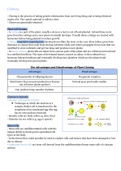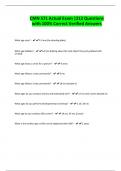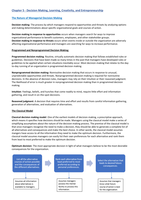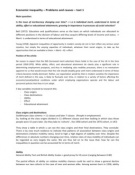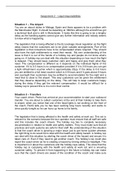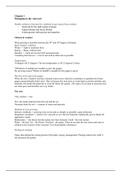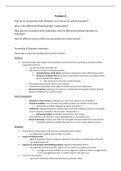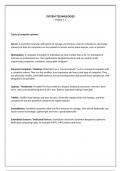Cloning
- Cloning is the process of taking genetic information from one living thing and creating identical
copies of it. The copied material is called a clone
- Clones are genetically identical
Plant Cell Cloning:
- A cutting is a part of the plant, usually a stem or a leaf, is cut off and planted. Adventitious roots
grow from the cuttings and a new plant eventually develops. Usually those cuttings are treated with
hormones before being planted to induce growth
- Tubers (vegetative reproduction) develop from either the stem or the root. Stem tubers grow from
rhizomes or runner that swell from storing nutrients while root tubers propagate from roots that are
modified to store nutrients and get too large and produce a new plants
- In tissue culture, plant cells are taken from various parts of the plant and are cultured and nurtured
in a sterilized medium. The mass of developed tissues, known as callus, is then cultured in a
hormone-ladened medium and eventually develops into plantlets which are the planted and
eventually develop into grown plants.
The Advantages and Disadvantage of Plant Cloning
Advantages Disadvantages
Characteristic of offspring known No genetic variation
Much faster than sexual reproduction (Farmer Natural gene pool made smaller
can sell more plants quicker)
Can produce large number of plants
Cloning in Animals:
- Somatic cell nuclear transfer
➔ Technique in which the nucleus of a
somatic (body) cell is transferred to the
cytoplasm of an enucleated egg (the egg
has its own nucleus removed)
- Somatic cells are body cells (e.g; skin, liver)
- Gametes are sex cells (e.g; egg or sperm)
Stem Cells:
- Stem cells are undifferentiated cells with the
unique ability to develop into specialised cell
types in the body.
- In the future they could possibly be used to replace cells and tissues that have been damaged or lost
due to disease
- Embryonic stem cells are stem cell derived from the undifferentiated inner mass cells of a human
embryo
- Cloning is the process of taking genetic information from one living thing and creating identical
copies of it. The copied material is called a clone
- Clones are genetically identical
Plant Cell Cloning:
- A cutting is a part of the plant, usually a stem or a leaf, is cut off and planted. Adventitious roots
grow from the cuttings and a new plant eventually develops. Usually those cuttings are treated with
hormones before being planted to induce growth
- Tubers (vegetative reproduction) develop from either the stem or the root. Stem tubers grow from
rhizomes or runner that swell from storing nutrients while root tubers propagate from roots that are
modified to store nutrients and get too large and produce a new plants
- In tissue culture, plant cells are taken from various parts of the plant and are cultured and nurtured
in a sterilized medium. The mass of developed tissues, known as callus, is then cultured in a
hormone-ladened medium and eventually develops into plantlets which are the planted and
eventually develop into grown plants.
The Advantages and Disadvantage of Plant Cloning
Advantages Disadvantages
Characteristic of offspring known No genetic variation
Much faster than sexual reproduction (Farmer Natural gene pool made smaller
can sell more plants quicker)
Can produce large number of plants
Cloning in Animals:
- Somatic cell nuclear transfer
➔ Technique in which the nucleus of a
somatic (body) cell is transferred to the
cytoplasm of an enucleated egg (the egg
has its own nucleus removed)
- Somatic cells are body cells (e.g; skin, liver)
- Gametes are sex cells (e.g; egg or sperm)
Stem Cells:
- Stem cells are undifferentiated cells with the
unique ability to develop into specialised cell
types in the body.
- In the future they could possibly be used to replace cells and tissues that have been damaged or lost
due to disease
- Embryonic stem cells are stem cell derived from the undifferentiated inner mass cells of a human
embryo

